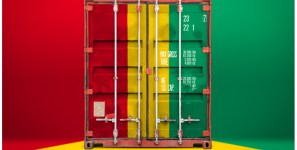How do merchandise goods get from one place to another? Until the transporters introduced in Star Trek become a reality, businesses must rely on some form of freight transport to get the job done. Shipping typically relies on transport by sea, particularly in global trade, but when referencing the shipper industry it can also pertain to transportation by road, by rail or by plane. For companies that rely on international trade, merchant shipping is often the first and sometimes the only feasible option. More than 100,000 commercial ships worldwide carry cargo across the oceans to every continent (even Antarctica every once in a while). Barges tote bulk cargo on shorter distances via rivers and channels. A list of the largest global container shipping companies would include the Danish conglomerate A.P. Moller-Maersk, the Mediterranean Shipping Company, the French company CMA CGM, and China’s COSCO container lines. When expedience is necessary, as with perishable food items and pharmaceutical transport, air cargo is the fastest alternative available, and usually the most expensive. Rail and truck transport also play their roles, primarily that of the first or last links in an intermodal system that carries freight from its starting point to its final destination. The choice of carrier is only one challenge faced by companies that participate in global shipping; they must negotiate free on-board (FOB) costs, C&F (carriage and freight) insurance, and establish delivery schedules to which carriers must adhere.

TA Services Announces Acquisition of Alabama-based C2 Freight Resources
Acquisition Positions TA Services for Further Expansion in Brokerage Services TA Services Inc., a premier full-service logistics provider and division of PS… Read More
Happy New Year: IMO 2020 is Here
A new year is right around the corner, which means IMO 2020 is finally here. Effective January 1, 2020, Annex… Read More
Benefits of LTL Freight Shipping
Less than truckload (LTL) shipping is a method of shipping that uses either LTL carriers or parcel carriers. The sticking… Read More
Which Items are Prohibited in Shipping Containers
While shipping undeniably makes the relocation process much easier and significantly less complicated, the shipping practices do have some restrictions…. Read More
How Shippers Can Leverage IoT Technology Solutions in Their Supply Chains
At one time, managing supply chain logistics was among the most difficult challenges that existed for a shipping company. Previously,… Read More
C-TPAT DRIVES SUPPLY CHAIN SECURITY AND TRADE COMPLIANCE
In today’s ever-chaining business environment, organizations are faced with ongoing security challenges. It’s crucial for shippers to understand any potential… Read More
Five Important Ways to Negotiate Better Shipping Terms
The shipping industry presents smart people in business with a wide array of chances to negotiate better deals.
Two-Day Shipping or One-Day Order Processing: What Wins?
Your average customer doesn’t know much about logistics, so every e-commerce company faces a unique concern for giving customers what… Read More
HOW TO BE AN INTERMODAL SHIPPER OF CHOICE
Fluctuating capacity and freight rates along with increased focus on efficiency and sustainability have led to substantial growth in the… Read More
How Clean Shipping Fuels Support Trillion-Dollar Investments
Implementing the use of clean fuels such as green ammonia creates the potential of trillion-dollar investment opportunities, specifically in developing… Read More
Pros and Cons of Maritime Shipping
For a long time in human history, maritime shipping was the best way to transport your goods across the world…. Read More
RTM LINES PROVIDES INNOVATIVE SOLUTIONS TO AFRICA’S COMPLEX CARGO CHALLENGES
Headquartered in Norwalk, Connecticut, and boasting 38 years of trans-ocean transportation, RTM Lines continues its position as a major player… Read More
« Previous 1 … 4 5 6 7 Next »













